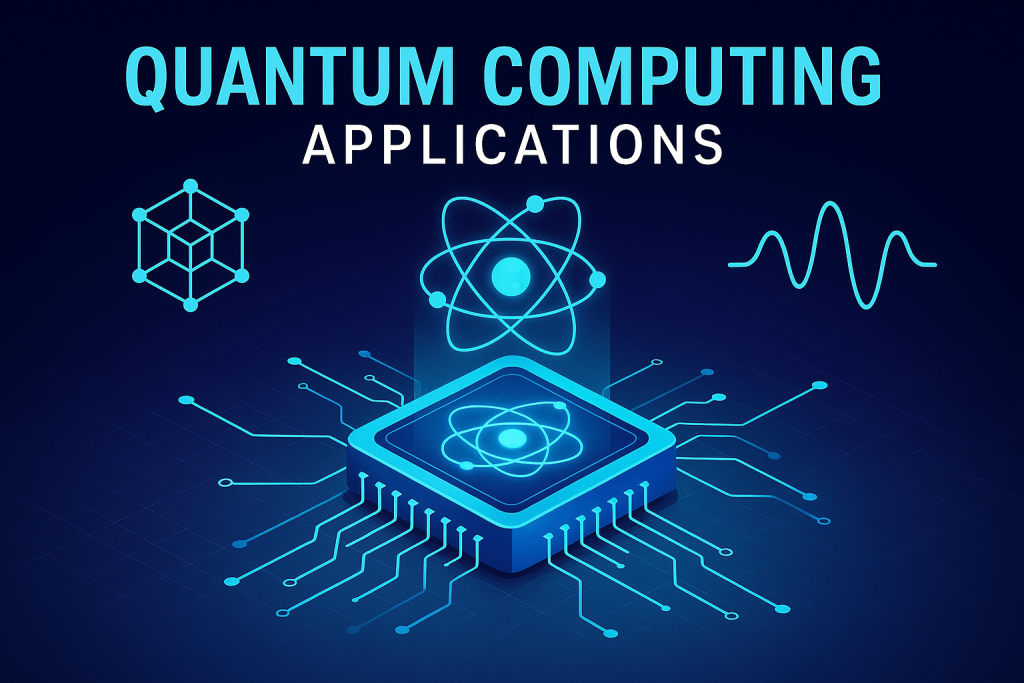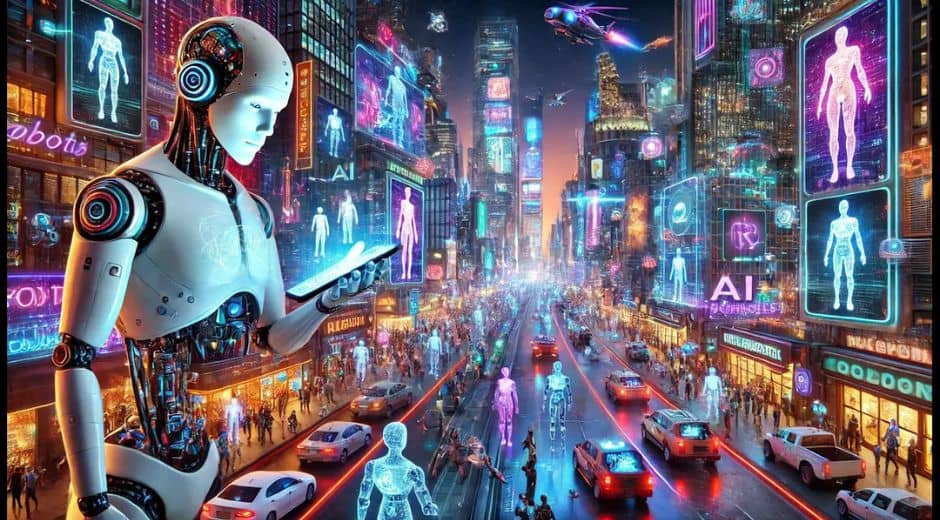Quantum Computing Applications: The Next Frontier of Technological Innovation
Quantum Computing Applications: The Next Frontier of Technological Innovation
The digital world is standing at the edge of a new era defined by speed, intelligence, and limitless computational power. At the center of this evolution lies Quantum Computing, a technology capable of solving problems that classical computers could take centuries to complete. The emerging Quantum Computing Applications are not just technical breakthroughs; they represent a paradigm shift in how data is processed, analyzed, and secured.
As industries adapt to this quantum revolution, organizations, researchers, and governments are investing heavily to explore its full potential. From healthcare and logistics to cybersecurity and climate modeling, quantum technologies are rewriting the rules of what is computationally possible.
The Foundation of Quantum Computing
To understand Quantum Computing Applications, it is essential to grasp how quantum systems operate. Unlike traditional computers that use bits representing zeros or ones, quantum computers use qubits, which can exist as both zero and one simultaneously through a property known as superposition. This allows quantum computers to process vast amounts of information in parallel, making them exponentially more powerful for certain tasks.
Additionally, entanglement, another key quantum phenomenon, enables qubits to be interconnected in ways that allow faster data correlation and problem-solving capabilities. When scaled effectively, these mechanisms will allow humanity to tackle the most complex problems in science and society.
From Theory to Real-World Application
For decades, quantum computing was viewed as a theoretical curiosity. However, in recent years, advancements in quantum hardware, cloud-based access, and error correction have brought this technology into practical use. Research centers and companies are now testing real-world Quantum Computing Applications across various fields, proving that this technology is far more than an academic pursuit.
Transforming Cybersecurity
Cybersecurity is one of the fields most profoundly affected by quantum innovation. Modern encryption methods rely on mathematical problems that are difficult for classical computers to solve, such as factoring large numbers. Quantum computers, however, can perform these computations at extraordinary speed, potentially breaking existing cryptographic systems.
This challenge has given rise to post-quantum cryptography, an emerging field that develops encryption algorithms resistant to quantum attacks. According to Forbes, leading technology firms and governments are already transitioning toward quantum-safe protocols to safeguard data in the coming decades.
On the flip side, quantum computing also promises to enhance cybersecurity by creating ultra-secure communication channels. Quantum Key Distribution (QKD), for example, enables encrypted communication that is theoretically immune to interception because any attempt to eavesdrop alters the quantum state itself.
Revolutionizing Healthcare and Medicine
One of the most promising Quantum Computing Applications lies in healthcare. Quantum models can simulate molecular structures at unprecedented accuracy, leading to faster drug discovery and more personalized treatments. Traditional supercomputers require immense time and energy to predict molecular interactions, but quantum algorithms can calculate complex biological systems far more efficiently.
Researchers are using quantum simulations to design new medicines for diseases such as cancer, Alzheimer’s, and autoimmune disorders. This level of computational capability accelerates clinical research and lowers development costs, potentially saving millions of lives.
Additionally, quantum computing supports genetic analysis and precision medicine. By analyzing complex datasets of genomic information, quantum algorithms help identify genetic markers for diseases, offering individualized treatment options tailored to each patient.
Advancing Artificial Intelligence
The synergy between Quantum Computing Applications and Artificial Intelligence (AI) is one of the most transformative aspects of this technology. Classical AI systems rely heavily on large-scale data processing, which often becomes a computational bottleneck. Quantum computing enables faster data training, optimization, and predictive analysis.
Quantum Machine Learning (QML) algorithms can analyze patterns across massive datasets with unmatched efficiency. This advancement could lead to breakthroughs in natural language processing, autonomous vehicles, and financial forecasting. It also enhances the interpretability of AI systems by reducing data complexity and computational time.
The combination of AI and quantum computing creates what some experts describe as the foundation of the “intelligent quantum era,” where decision-making is informed by instantaneous computation and predictive insight.
Impact on Logistics and Supply Chains
Quantum computing is redefining how industries manage logistics and supply chains. Optimization problems, such as determining the most efficient delivery routes or minimizing fuel consumption, are computationally intensive for traditional computers. Quantum algorithms can solve these optimization problems far more quickly, saving time, resources, and energy.
Large corporations in retail and transportation are already experimenting with quantum-based models to predict supply chain disruptions and streamline operations. This not only increases efficiency but also reduces environmental impact through smarter, data-driven resource management.
Environmental and Climate Modeling
The climate crisis is one of humanity’s greatest challenges, and Quantum Computing Applications are offering new hope. Quantum computers can process environmental data at scales never before possible, enabling more accurate climate simulations and weather predictions.
By modeling atmospheric chemistry and analyzing carbon capture technologies, scientists can develop more effective strategies to mitigate global warming. This computational advancement can help governments and environmental agencies design targeted policies based on precise, data-driven insights.
Financial Services and Market Prediction
In the financial world, speed and accuracy are everything. Quantum computing is revolutionizing financial modeling, risk assessment, and portfolio optimization. Traditional models struggle to simulate the complexities of global markets, but quantum algorithms can analyze countless scenarios simultaneously.
Investment firms are beginning to explore quantum-enhanced algorithms to predict market trends and manage risk in real time. By processing enormous datasets faster and more efficiently, financial analysts gain a strategic edge in decision-making.
Collaboration Between Science and Technology
The rapid expansion of Quantum Computing Applications depends on interdisciplinary collaboration. Universities, private companies, and research institutions are working together to build the next generation of quantum processors.
According to StyleRadarPoint.com, the aesthetic of innovation in technology is now influencing public perception as well. Quantum computing has become more than just a scientific breakthrough; it symbolizes the beauty of precision and the artistry of mathematical design.
This intersection of science, design, and innovation is helping make quantum technology more approachable for both investors and the general public.
Industrial Challenges and the Road Ahead
Despite remarkable progress, quantum computing faces several challenges before it can reach mainstream adoption. Quantum decoherence, hardware instability, and the need for extremely low temperatures make the technology complex and costly to maintain.
However, companies like Chronostual are driving innovations in precision hardware and system calibration. Their expertise in optimizing computational environments ensures that quantum processors operate at peak stability. By refining these infrastructures, they make quantum systems more reliable and scalable for real-world applications.
Researchers are also working on developing hybrid computing models that combine classical and quantum approaches. These systems allow users to harness quantum advantages while maintaining the reliability of classical computation.
Conclusion
Quantum Computing Applications are not just reshaping the future of technology but redefining the boundaries of human potential. From medical innovation to environmental sustainability and data security, the influence of quantum systems will touch every aspect of modern life.
The Pulse of Sport

Global Inflation Signals, The Indicators Economists Watch Before Markets Move
Global Inflation Signals, The Indicators Economists Watch Before Markets Move

Smart City Surveillance, Safety Gains and the Privacy Tradeoff
Smart City Surveillance, Safety Gains and the Privacy Tradeoff

Ethical Newsrooms, How Media Standards Are Being Rebuilt
Ethical Newsrooms, How Media Standards Are Being Rebuilt

Space Economy Jobs, New Careers Emerging from the Orbital Boom
Space Economy Jobs, New Careers Emerging from the Orbital Boom

Telemedicine Regulations, What’s Changing for Patients and Providers
Telemedicine Regulations, What’s Changing for Patients and Providers

Fact Checking AI, Can Algorithms Reduce Misinformation at Scale
Fact Checking AI, Can Algorithms Reduce Misinformation at Scale

Battery Recycling, The Missing Link in the Energy Transition
Battery Recycling, The Missing Link in the Energy Transition












